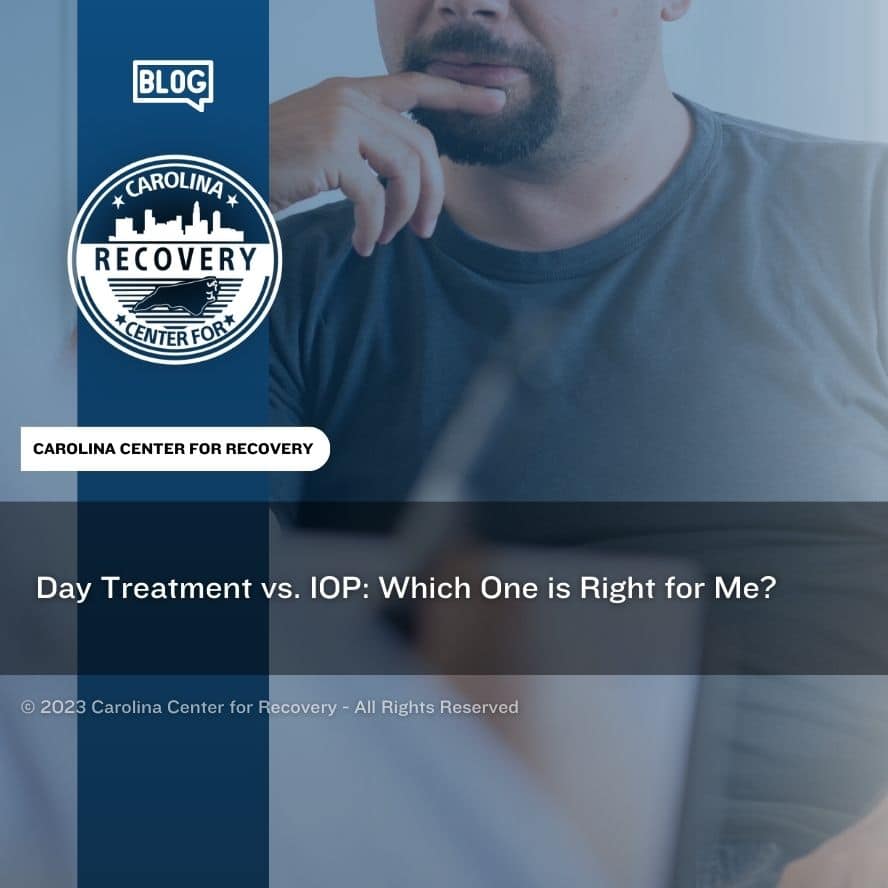Day Treatment vs. IOP: Which One is Right for Me?

Medically Verified: 2/1/24
Medical Reviewer
Chief Editor

All of the information on this page has been reviewed and verified by a certified addiction professional.
Drug and alcohol addiction are complex conditions that impact every aspect of a person’s life and require comprehensive treatment. Even though addiction can be managed, those living with addiction often need ongoing support after going through rehab to maintain their commitment to sobriety.
Addiction treatment is available in several settings and levels of care to meet people’s widely different needs. There are inpatient and residential addiction rehab programs to stabilize people with long-lasting addictions or those in the earliest stages of detoxification and recovery. There are also several types of outpatient programs, including day treatment and intensive outpatient programs. These levels of care provide structure, support, and treatment for people during different stages of their recovery from addiction.
Understanding what to expect in day treatment programs and IOPs can help you choose the right type of care to meet your needs and motivate you to continue treatment during challenges. Reach out to the team at the Carolina Center for Recovery now to learn more about your treatment options.
What Happens in an IOP?
Intensive outpatient programs, also called IOPs, are a type of outpatient substance abuse treatment for people recovering from addiction. In most cases, people participate in an IOP after finishing a residential or inpatient treatment program.
The primary goal of an IOP is to help people develop good routines and habits that support long-term recovery and sobriety. An IOP may be best suited for those who:
- Are not in active withdrawal
- Do not experience frequent, intense cravings
- Are medically and mentally stable
- Have reliable transportation to and from treatment sessions
- People who require comprehensive treatment but must work or care for family members
People in an IOP typically spend several hours per day, three to five days per week, in treatment sessions. Common IOP treatment activities include:
- Individual psychotherapy and cognitive-behavioral therapies
- Family therapy and education
- Group therapy
- Relapse-prevention education
- Coping skills development
While participating in an IOP, people receive intensive treatment from dedicated medical, addiction, and mental health specialists. Receiving care from an intensive outpatient program allows people to get high-quality treatment while remaining close to their support network and living at home.
What Happens in a Day Treatment Program?
Day treatment programs–also known as partial hospitalization or partial care programs–are intensive outpatient treatment programs for people living with addiction. People in day treatment programs typically spend 25 to 30 hours engaging in treatment activities.
Day treatment programs provide structured and evidence-based treatments, including:
- Individual behavioral therapy and counseling
- Family therapy and planning meetings
- Medications
- Mental health treatment
- Medical care
- Screenings
- Relapse prevention education
- Coping skills practice
People in day treatment programs typically spend a significant part of each weekday in therapy, group support, and other appointments. This intensive schedule can make it challenging to balance other responsibilities, such as caring for family members, working, or attending school.
A day treatment program may be best suited for people who:
- Have completed inpatient or residential treatment
- Live in an environment that increases the risk of relapse
- Require intensive treatment to manage symptoms of addiction
- Have not been successful in a less-intensive level of care, such as an IOP
- Require significant mental health or medical care during treatment
- Do not feel confident that they can avoid triggers or avoid relapse
A day treatment program requires a significant commitment of time and energy but may be the right fit for people who need a high level of supervision, support, and care during recovery.
Day Treatment vs. IOP: Which One is Right For Me?
Day treatment programs and IOPs both offer high levels of treatment, support, and structure for those in recovery from addiction. So, how do you know which level of care is right for you?
Before beginning treatment, you will undergo an evaluation to determine which level of care you need. A medical doctor or addiction specialist will ask questions about your medical, mental health, and substance abuse history. They may also perform a physical examination and lab testing.
Many people begin recovery in residential or inpatient care. After stabilization, you may move to a less intensive treatment program, such as a day treatment program or IOP.
The most significant difference between an IOP and a day treatment program is the level of care and amount of time required. Day treatment programs provide a more intensive level of treatment that may be best suited for people with co-occurring mental health conditions, severe or long-lasting addictions, or significant medical needs.
In an IOP, people receive less intensive care and have the flexibility to work, attend school, care for children, and connect with their social supports and community resources.
The level of care you require depends on your individual needs during treatment. Speak with a doctor or addiction specialist to determine which level of treatment can help you reach your goal of lifelong recovery and sobriety.
Find Addiction Treatment Now
If you or someone you love requires addiction treatment, you are not alone. The comprehensive, effective quality you need is available at the Carolina Center for Recovery.
Call today to speak to our admission specialists about starting one of our holistic rehab programs or to schedule an intake assessment.

